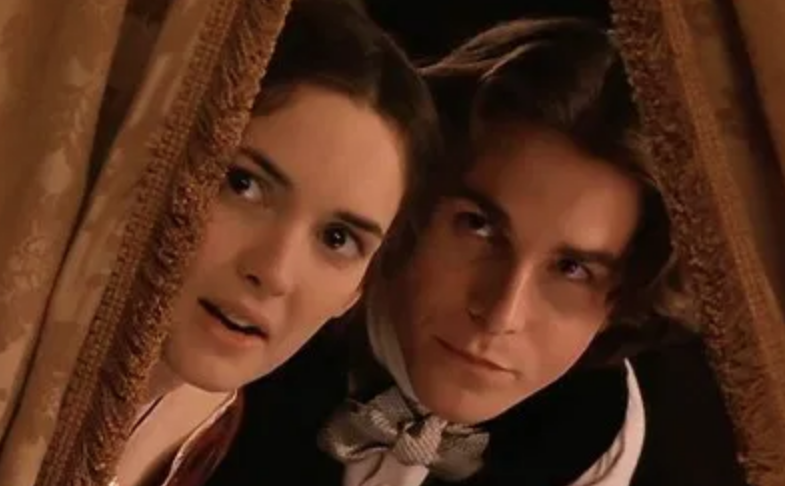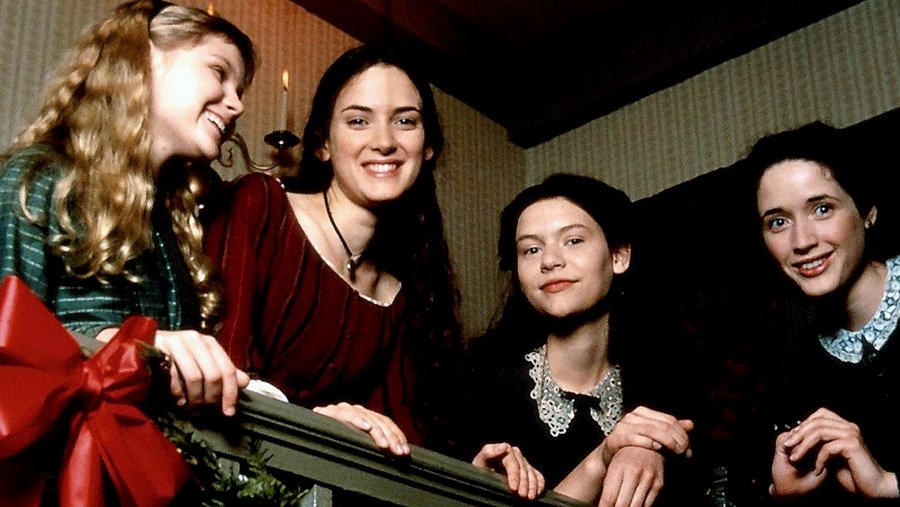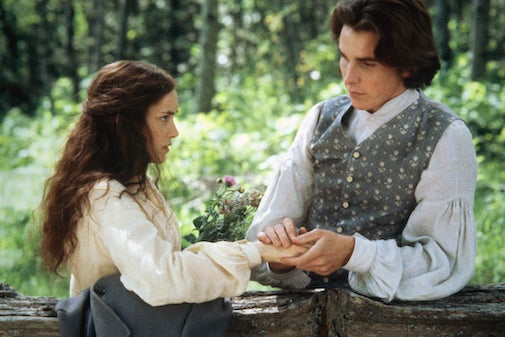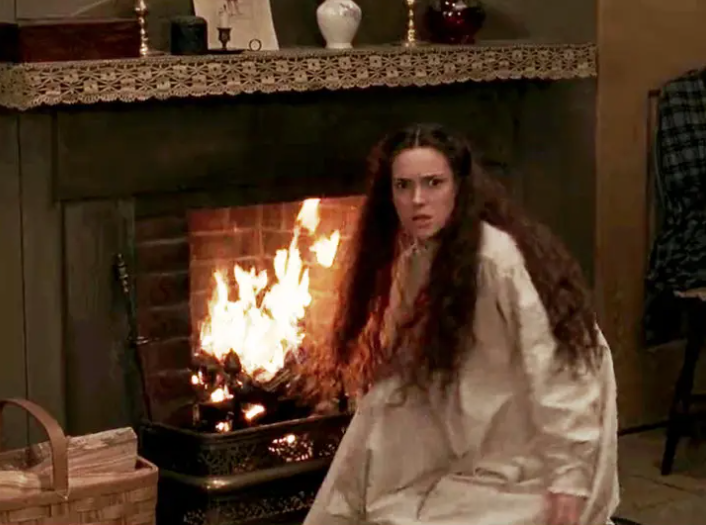We're celebrating Winona Ryder for her birthday this week

by Lynn Lee
Was Winona Ryder miscast in Little Women? Boy, was she ever. Or so I thought back in 1994 when I first heard she was playing Jo, second of the four March sisters, in the then-new film adaptation of the Louisa May Alcott classic. As a teenager who’d read Little Women so many times it had become personal canon, I found the casting ludicrous on its face. After all, in the book Jo is lanky, tomboyish, awkward, and plain. Ryder, by contrast, was tiny, graceful, and so exquisitely pretty I had a bit of a crush on her, a fact that sharpened rather than softened my disapproval. Still, in the end curiosity and my family’s tradition of going to see a movie on Christmas meant I got to judge for myself just how wrong she was for the role.
Readers, what can I say? She completely won me over....

Part of it was the film overall was so well done. To this day it remains my favorite LW adaptation and one of my favorite movies. Directed by Gillian Armstrong and scripted by Robin Swicord with a fine balance of savvy and sentiment, it stays true to the spirit of the novel without cleaving slavishly to the text. It’s also incredibly engaging on purely cinematic terms, painting a visually and emotionally rich tableau of a close-knit, female-dominated family in post-Civil War New England and boosted by Thomas Newman’s gorgeously textured score. Featuring an exemplary cast that includes, in addition to Ryder, a very young Claire Danes as Beth and an even younger Kirsten Dunst as young Amy, Susan Sarandon as Marmee, Christian Bale as Laurie, and Gabriel Byrne as Professor Bhaer, it’s a terrific, warm-hearted ensemble piece, brimming over with the affection the characters bear each other without veering into the maudlin or saccharine.
But Jo, Alcott’s surrogate, is the heart of Little Women; the whole thing simply doesn’t work if she doesn’t. That was literally the case with the 1994 adaptation, which spent years languishing in development until Ryder came on board and gave Columbia Pictures some assurance the film would find an audience. Fortunately for fans of both the book and the actress, she took the role seriously while making it wholly her own. Her Jo feels recognizably modern, someone we can envision stepping either into or out of the 20th century, yet she’s plausible as an independent-minded girl struggling to find her place in the 19th. Watching her, you can trace the through-line from Josephine March to Reality Bites’ Lelaina Pierce: the bright, artistically ambitious idealist, thrust into a cruder, wider world, who must fumble and flirt with selling out before figuring out what – and who – really matters to her.

Granted, Noni’s take on Jo isn’t flawless. She occasionally overplays her fits of temper or mugs a little too hard in displaying her impatience with feminine mores. And my grumpy pre-judgment was correct in one respect: she’s definitely far too pretty to carry off the recurring references, admittedly plucked straight from the book, to Jo as “ugly” or her hair as her “one beauty.” The latter comment is especially ironic given that Ryder’s wigs are by far the most unattractive aspect of her appearance in Little Women.
What she captures wonderfully, however, is Jo’s vitality and her restlessness. She always seems to be either in motion or on the verge of it, always looking out to an imagined audience or future, even as she remains anchored (in both the positive and negative sense) by her love for her family. This internal conflict animates her most poignant scenes, whether they’re with beloved, doomed Beth or a sympathetic Marmee who encourages her to spread her wings. These scenes also demonstrate how effectively Ryder plays off the other cast members, a quality that extends to her two romantic interests (Bale and Byrne). Somehow she displays potent chemistry with both of them, despite their being two very different men and even more different relationships. In their presence, she exudes a radiance and charisma that make it easy to understand why – even if you squint and imagine her being homely – they could both fall in love with her.

The same could be said of the Academy, which handed Ryder her second Oscar nomination in a row, this time for lead, following her supporting actress nomination for The Age of Innocence the previous year. Little Women would be the last time they recognized her and arguably marked the pinnacle of her movie career. The 1994 Best Actress Oscar lineup is generally considered weak, yet I maintain Ryder deserved to be in it. She took what had been regarded, however unfairly, as an old-fashioned character from an old-fashioned little girls’ book and made her vibrant, compelling, and relatable to contemporary viewers, including a whole new generation of young girls. For me personally, she’ll always remain the definitive Jo March.
previously in our Winona Ryder series
up next: ???